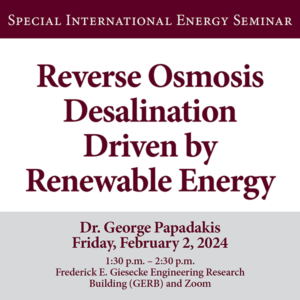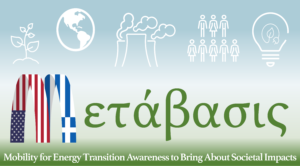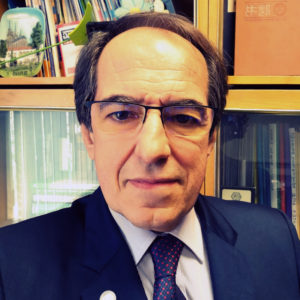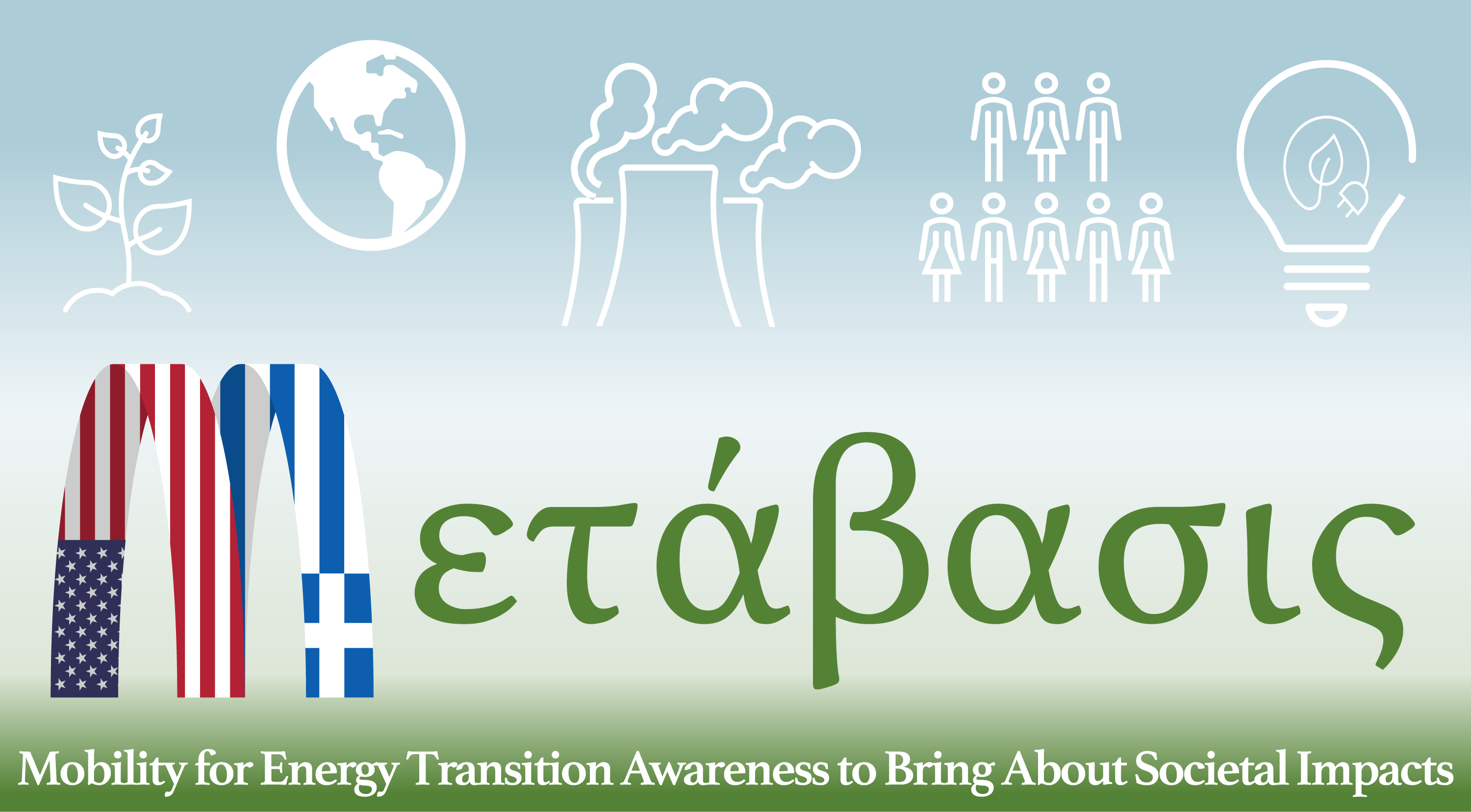Reverse Osmosis Desalination Driven by Renewable Energy

As a part of the funded project “METAVASIS” (Mobility for Energy Transition Awareness to Bring About Societal Impacts), implemented by the Texas A&M Energy Institute and the Agricultural University of Athens and supported by the U.S. Embassy in Athens, the Texas A&M Energy Institute is hosting a Special International Energy Seminar with Dr. George Papadakis, a Professor of Renewable Energy Technology at the Agricultural University of Athens. The seminar will be held on Friday, February 2, 2024, from 1:30 p.m. – 2:30 p.m. CST (UTC -6:00) in the Frederick E. Giesecke Engineering Research Building (GERB) Third Floor Conference Room and through a Zoom Meeting. The topic will be “Reverse Osmosis Desalination Driven by Renewable Energy.”
Abstract

The global water demand has been increased many folds in the last 20 years and it is estimated to be increased by more than 55% by 2050 while in many regions in the world, freshwater demand already exceeds supply. Hence, it is imperative that sustainable solutions should be found. Today several technologies are available to solve the problem of fresh water supply which are discussed in this presentation. In many cases however and especially when surface or ground water is not sufficient to satisfy demand, desalination seems to be the ultimate solution. Today the most popular desalination process is Reverse Osmosis (RO) because it consumes the least amount of energy in comparison with other desalination processes such as the thermal ones. The reason for this is the implementation of innovative technologies for energy recovery developed in the last 20 years or so, that reduced considerably the overall RO energy requirements for freshwater production. Such energy recovery technologies and apparatuses used in RO are discussed in the presentation down to less than 2 kWh/m3 of fresh water. Nevertheless, RO still consumes considerable amounts of energy, and the use of renewable energy (RE) must be considered to reduce the emissions from RO desalination plants worldwide. Relevant topologies and modes of operation of renewable energy systems such as photovoltaics and wind turbines with RO are discussed and compared in the presentation, technically and economically. Finally, RE-RO case studies are presented, and the RE-RO prospects are discussed as the optimal solution for sea-water desalination.
Biography

Dr. George Papadakis is Professor of Renewable Energy Technology (ORCID: https://orcid.org/0000-0002-1805-5056). For more than twenty-five years at the Agricultural University of Athens, Papadakis’s research and educational efforts have focused on sustainable agriculture and renewable energy (including bioenergy, photovoltaic systems and microgrids in agriculture and remote areas), energy efficiency, water desalination combined with renewable energy and heat and mass transfer in farm buildings. Since 1996 he has been scientific coordinator of more than 35 projects (most of which were multi-partner international projects funded by the EuropeanCommission). He has cooperated with public and private organizations from more than 35 countries in Europe and internationally. He has successfully supervised 5 PhD students and he is currently supervising 4 PhD students. He has authored/co-authored more than 200 publications (and one patent pending) with more than 10,550 citations (Google scholar, January 2024) (index h=52). Top 2% cited researcher internationally in the field of Energy, continuously from 2020 to 2023, (https://elsevier.digitalcommonsdata.com/datasets/btchxktzyw/6). Papadakis is the founding Editor in Chief of the international scientific journal “Green Energy and Sustainability”, http://www.pivotscipub.com/ges and member of the Editorial Boards of 6 international scientific journals. He is also a founding member of the International Academy of Agricultural and Biosystems Engineering (since 2016), https://cigr.org/view_ac_foun_fell and member of the European Academy of Sciences (since 2020), https://www.eurasc.eu/.
METAVASIS Program

Learn more about the Texas A&M Energy Institute’s METAVASIS program:
- News Articles
- Events
